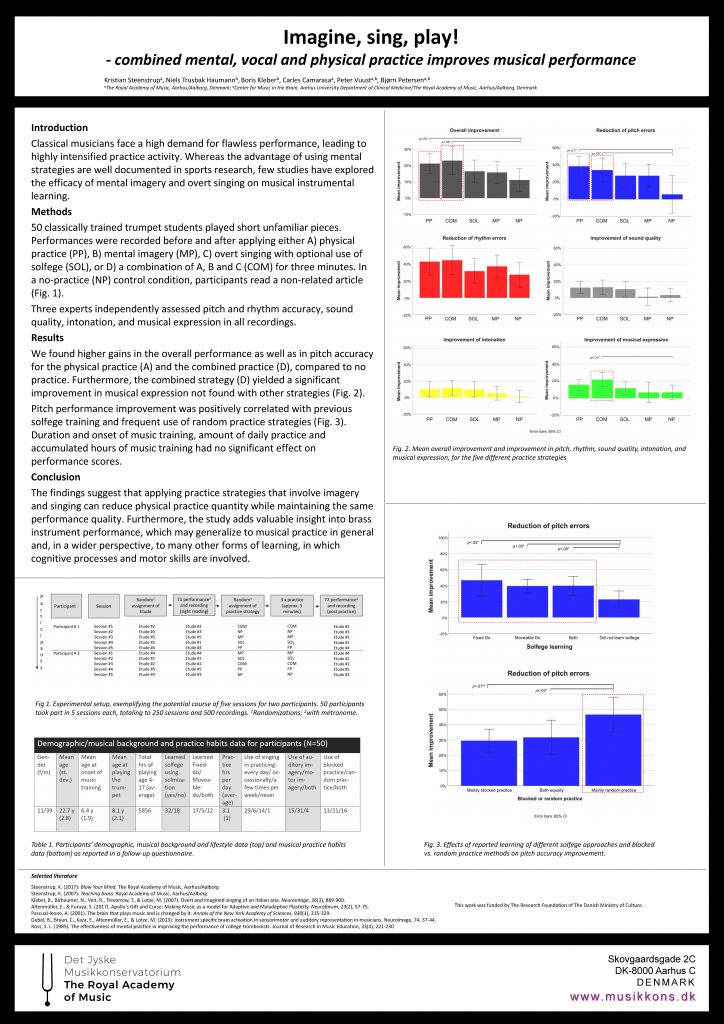Imagine, Sing, Play-
Research project by Professor Kristian Steenstrup
Kristian Steenstrup and colleagues from DJM and the Center for Music in the Brain have published an article in the acclaimed journal Frontiers of Psychology, Performance Science. The article describes the results of Steenstrup’s extensive research project on mental practice, which he has carried out with support from RAMA and the Ministry of Culture’s research fund. The project systematically investigated the effect of three specific practice strategies: auditory / motor visualization, singing w/wo solmisation, physical exercise and a combination of the three, on the quality and effectiveness of trumpet students’ acquisition of an unknown piece of music. 50 trumpet students from European countries have participated in the study, which also involved three experts who independently and in random order have assessed the performance in a total of 500 sound recordings. The main conclusion is that the use of a combination of singing, visualization and physical exercise gives an equally good result in terms of pitch accuracy and that the same combination results in a significantly better musical expression than all the other strategies.
The article is open to everyone and can be read here
Abstract.
Classical musicians face a high demand for flawless and expressive performance, leading to highly intensified practice activity. Whereas the advantage of using mental strategies is well documented in sports research, few studies have explored the efficacy of mental imagery and overt singing on musical instrumental learning. In this study, 50 classically trained trumpet students performed short unfamiliar pieces. Performances were recorded before and after applying four prescribed practice strategies which were (1) physical practice, (2) mental imagery, (3) overt singing with optional use of solfege, (4) a combination of 1, 2 and 3 or a control condition, no practice. Three experts independently assessed pitch and rhythm accuracy, sound quality, intonation, and musical expression in all recordings. We found higher gains in the overall performance, as well as in pitch accuracy for the physical practice, and the combined practice strategies, compared to no practice. Furthermore, only the combined strategy yielded a significant improvement in musical expression. Pitch performance improvement was positively correlated with previous solfege training and frequent use of random practice strategies. The findings highlight benefits from applying practice strategies that complement physical practice in music instrument practice in short term early stages of learning a new piece. The study may generalize to other forms of learning, involving cognitive processes and motor skills.
Authors: Kristian Steenstrup1, Niels Trusbak Haumann2, Boris Kleber2, Carles Camarasa1, Peter Vuust1,2 and Bjørn Petersen1,2
1 The Royal Academy of Music, Aarhus, Denmark, 2 Center for Music in the Brain, Department of Clinical Medicine, Aarhus
University, Aarhus, Denmark
See also Kristian Steenstrups poster presented at the Neurosciences and Music VII conference in Aarhus, June 2021

